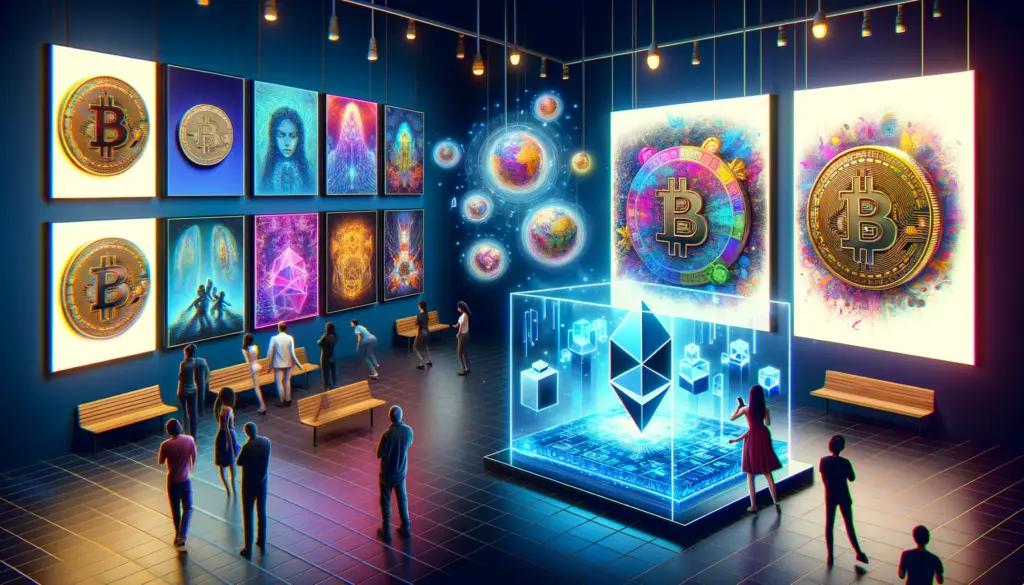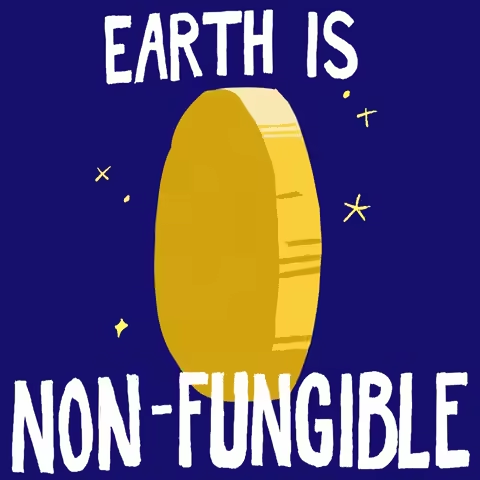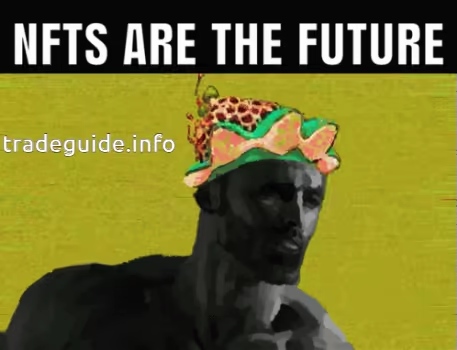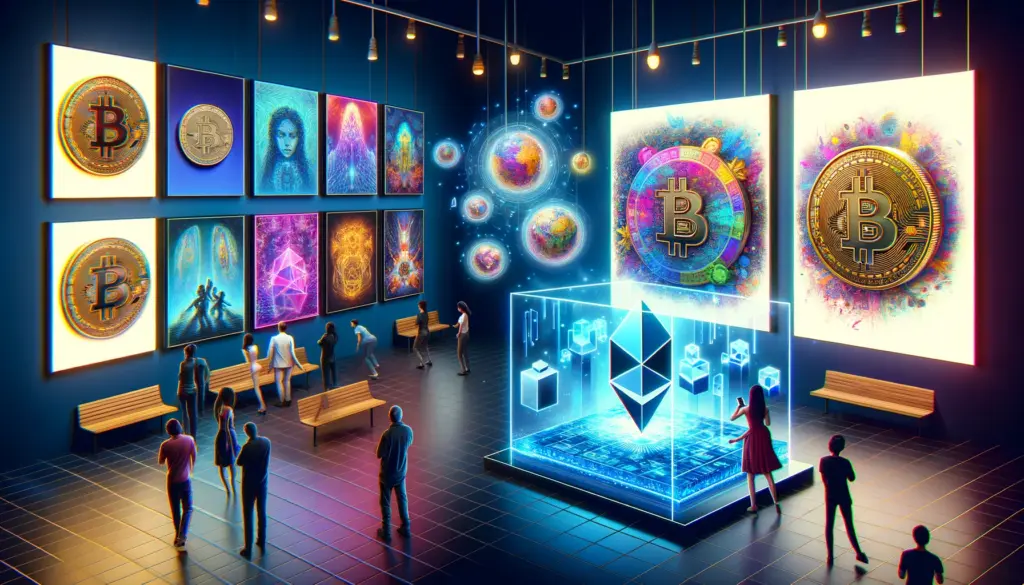Table of Contents
Introduction: What Are Tokens?
Tokens are like special types of digital coins or stamps you can collect or trade online. They are very important in the world of digital transactions. Today, we’re going to dive into two main types of tokens: fungible and non-fungible tokens.
You’ll learn about what they are, how they are used, and why they matter. So, let’s find out what these tokens are all about!
Understanding Fungible Tokens

What are Fungible Tokens?
Fungible tokens are like the regular money you use every day. They can be traded or exchanged and each unit is just like the other. For example:
- Dollar bills: Whether you have one dollar or another, they’re worth the same.
- Bitcoin: One Bitcoin has the same value as another Bitcoin.
These tokens are super useful when you want to buy something or trade online because they work just like the money in your wallet.
The Role of Fungible Tokens in Digital Economies
Fungible tokens are really important in online markets. Here’s why they’re so useful:
- Easy to trade: You can quickly exchange these tokens for goods or services online.
- Divisible: Just like you can break down a dollar into cents, you can divide these tokens into smaller parts. This makes it easy to use the exact amount you need.
Popular Fungible Tokens and Their Impact
Some of the most well-known fungible tokens include Bitcoin and Ethereum. They have helped change how we think about money today. Here’s what they’ve done:
- Global use: People all around the world use these tokens for all sorts of things, from buying coffee to paying for services.
- Market growth: The more people use these tokens, the more the digital currency market grows.
Comparison of Fungible Tokens
| Feature | Bitcoin | Ethereum |
|---|---|---|
| Use | Mainly used for payments | Used for payments and smart contracts |
| Flexibility | Less flexible | More flexible due to smart contracts |
| Speed | Slower transaction times | Faster transaction times |
These tokens are not just about buying and selling; they are part of a bigger change in our digital world. They make transactions fast and keep your money safe.
So, whether you’re paying for a movie online or sending money to a friend in another country, fungible tokens make it smooth and easy.
Exploring Non-Fungible Tokens (NFTs)
What are Non-Fungible Tokens?
Non-fungible tokens (NFTs) are unique digital items you can own. Unlike the money in your wallet where every dollar bill is the same, each NFT is different and special in its own way.
Think of them as unique treasures in the digital world, each with its own distinct identity and value. Unlike the cash you carry, where every dollar is interchangeable, every NFT is special. For instance, in the realm of digital art, each artwork is a singular creation that only one person can claim ownership of at any time.
Similarly, digital collectibles, much like rare trading cards, each have their own unique characteristics and details that set them apart from any other.
- Digital Art: Each piece is one-of-a-kind.
- Collectibles: Like digital trading cards, each with unique details.
What makes NFTs really exciting is that no two are exactly the same—each one has its own story, background, and reason for being valuable. Whether it’s a piece of digital art created by a renowned artist or a rare digital card from a limited series, owning an NFT means having something truly unique.
This uniqueness is a big part of what drives people’s interest and the growing market for these digital assets. They’re not just files on a computer; they represent real ownership of something rare and special in the digital space.
The Unique Characteristics of Non-Fungible Tokens
Non-fungible tokens (NFTs) stand out because each one is completely different from the other. Here’s what makes them unique:
- Individuality: Every NFT is one-of-a-kind. If you buy a digital painting as an NFT, it’s yours alone; no one else has exactly the same one.
- Proof of Ownership: Owning an NFT is like having a signed certificate that proves it’s yours. This is very important in the digital world, where copying is easy.
These characteristics make NFTs really special in the digital world:
- Uniqueness: Unlike regular money or common digital tokens, every NFT is different. This can be anything from art, and music, to digital collectibles.
- Authenticity: With NFTs, you can verify that what you own is the original, not a copy. This makes them very valuable, especially for collectors and artists.
Why People Value NFTs
People like NFTs for many reasons:
- They’re unique: You can own something no one else has.
- They’re secure: It’s hard to fake ownership with NFTs.
- They connect you directly with creators: Artists can sell directly to their fans without middlemen.
NFTs have started to change how we think about buying and owning digital items. Whether it’s a piece of digital art, a music file, or a tweet, NFTs let you own these things in a way that wasn’t possible before.
They’re not just for tech experts; anyone interested in digital collectibles or artworks can get involved. This is why they’re becoming more popular every day.
Use Cases of Non-Fungible Tokens (NFTs)
Non-fungible tokens (NFTs) are more than just digital collectibles; they have practical uses in various fields. Let’s explore how NFTs are being used beyond the art world.
Digital Art and Collectibles
- Artists and creators: NFTs have revolutionized the way artists sell their work. By minting art as NFTs, artists can reach a global audience and maintain ownership rights, allowing them to earn royalties on future sales.
- Collectors: Collectors can purchase and own unique digital artworks, secure in the knowledge that their ownership is recorded on a blockchain, which is a type of digital record-keeping.
Gaming and Virtual Real Estate
- In-game assets: Players can buy, sell, or trade virtual items like costumes or weapons as NFTs within video games. These items are truly owned by the player, not just licensed by the game developer.
- Virtual land: Platforms like Decentraland allow users to buy and develop virtual land parcels as NFTs, creating an economy similar to the real-world real estate market.
Music and Media
- Musicians: Artists are starting to use NFTs to sell exclusive rights to music tracks, albums, or special editions directly to their fans.
- Film and interactive media: Filmmakers and media producers can offer exclusive content or experiences to their audience as NFTs.
Identity and Certification
- Academic credentials: Universities can issue degrees as NFTs, making it easy to verify and share academic achievements securely online.
- Professional licenses: Similar to academic credentials, professional certifications and licenses can be issued as NFTs to streamline verification processes.
Comparison Table: Digital Art vs. Gaming vs. Music NFTs
| Feature | Digital Art NFTs | Gaming NFTs | Music NFTs |
|---|---|---|---|
| Primary Use | Art collection | Trading & gameplay | Music ownership |
| Benefits | Direct sales, royalties | True ownership of assets | Direct sales, fan engagement |
| Typical Buyers | Art collectors, investors | Gamers, collectors | Music fans, collectors |
These examples show just how versatile NFTs are. From playing video games to buying music, NFTs are opening up new ways for creators and consumers to interact with digital assets.
They’re not just for tech enthusiasts; they’re for anyone interested in owning something unique in the digital space. As NFTs continue to grow in popularity, we’ll likely see even more innovative uses in different industries.
Comparing Fungible and Non-Fungible Tokens

Key Differences Between Fungible and Non-Fungible Tokens
When exploring the world of digital tokens, understanding the difference between fungible and non-fungible tokens is crucial. Here’s a simple breakdown to help you grasp how they differ:
Fungible Tokens:
- Interchangeability: Each token is identical to another of the same type, making them interchangeable. This is like exchanging one dollar bill for another.
- Divisibility: You can divide fungible tokens into smaller parts. For example, you can have half a Bitcoin or a quarter of an Ethereum.
Non-Fungible Tokens (NFTs):
- Uniqueness: Every NFT is unique, carrying specific information that makes it different from any other token.
- Indivisibility: NFTs cannot be divided into smaller units without losing their value and integrity. Each NFT must be bought or sold as a whole.
Comparison Table: Fungible vs. Non-Fungible Tokens
| Feature | Fungible Tokens | Non-Fungible Tokens |
|---|---|---|
| Interchangeability | Yes | No |
| Divisibility | Yes | No |
| Uniqueness | No | Yes |
| Usage | Currency, trading | Collectibles, art, unique assets |
This comparison shows that fungible tokens are best for everyday transactions and investments due to their flexibility and uniformity.
On the other hand, non-fungible tokens are ideal for items that need to prove their authenticity and ownership, such as digital art or rare collectibles.
By knowing these differences, you can better decide which type of token suits your needs in the digital economy.
Pros and Cons of Fungible and Non-Fungible Tokens
Understanding the advantages and disadvantages of fungible and non-fungible tokens can help you decide which type might suit your needs better. Here’s a simple breakdown of each.
Pros of Fungible Tokens
- Liquidity: Fungible tokens are easy to trade because each unit is the same as every other unit. This makes them very liquid, meaning you can quickly buy or sell them without affecting their price.
- Divisibility: You can break down fungible tokens into smaller amounts, which is great for transactions of all sizes.
- Uniformity: Their identical nature makes it easy to verify and transfer between parties without the need for complex verification.
Cons of Fungible Tokens
- Volatility: Prices of fungible tokens like Bitcoin and Ethereum can fluctuate wildly based on market conditions.
- Lack of uniqueness: Since every token is the same, they don’t hold any special value beyond their market price.
Pros of Non-Fungible Tokens
- Uniqueness: Each NFT is one-of-a-kind, which can increase its value due to rarity and demand.
- Ownership rights: NFTs provide a secure proof of ownership that is publicly verifiable through the blockchain.
- Creative market expansion: They offer new opportunities for artists and creators to monetize their work directly.
Cons of Non-Fungible Tokens
- Market understanding: The concept of NFTs can be hard to grasp, and not everyone understands their value or purpose.
- Liquidity issues: Selling an NFT might take longer since it’s unique and needs the right buyer who understands its worth.
Comparison Table: Fungible vs. Non-Fungible Tokens
| Aspect | Fungible Tokens | Non-Fungible Tokens |
|---|---|---|
| Pros | High liquidity, divisibility, uniformity | Uniqueness, secure ownership, creative market potential |
| Cons | Price volatility, lack of uniqueness | Complex market understanding, liquidity issues |
This table helps to illustrate the fundamental differences in how fungible and non-fungible tokens operate and the unique challenges and benefits they present. Whether you’re looking to invest, collect, or engage in the digital economy, understanding these pros and cons is crucial.
The Future of Tokens in Digital Transactions

As we look ahead, the role of fungible and non-fungible tokens in digital transactions is expected to expand significantly. Technological advancements, increased acceptance, and the expanding creative applications of these tokens fuel this growth.
Let’s explore what the future might hold for digital tokens and how they could transform the digital economy.
Increasing Integration in Mainstream Commerce
- Wider acceptance: As more people understand and trust digital tokens, more businesses are beginning to accept cryptocurrencies like Bitcoin and Ethereum for everyday transactions.
- Easier transactions: Technologies are improving to make transactions faster and more secure with tokens, making them more appealing for consumers and businesses alike.
Advancements in Non-Fungible Tokens (NFTs)
- Beyond art and collectibles: While today’s NFTs are largely focused on art and collectibles, future uses could include everything from tickets for events to academic credentials and legal documents.
- Increased accessibility: Efforts to make buying and selling NFTs easier could bring more people into the market, expanding the types of assets that are tokenized.
Regulatory Developments
- Clearer regulations: As the market for digital tokens grows, expect more specific regulations that could make the market safer and more reliable for investors and everyday users.
- Global standards: International agreements might develop to handle cross-border transactions and ownership of digital assets more smoothly.
Technological Innovations
- Blockchain improvements: As blockchain technology evolves, we can expect tokens to become even more integrated into digital platforms, supporting more complex and secure transactions.
- Interoperability between tokens: Future developments may allow different types of tokens to interact more seamlessly, making the digital economy more interconnected.
Comparison Table: Present vs. Future of Digital Tokens
| Aspect | Present | Future |
|---|---|---|
| Usage | Mostly in niche markets like art and collectibles for NFTs, and as alternative money for cryptocurrencies | Expanded to mainstream commerce, legal documents, and more |
| Technology | Still evolving, with some issues around speed and security | More advanced, offering faster transactions and enhanced security |
| Regulation | Unclear and varies by country | Likely more standardized and clear, with global guidelines |
As digital tokens continue to evolve, they could become as common in our daily lives as debit cards and online banking are today. By making transactions easier and more secure, and by providing a way to own unique digital assets, tokens are paving the way for a new era in the digital economy.
Whether for buying coffee with Bitcoin or owning a digital artwork verified as an NFT, the future of tokens looks promising and exciting.
Conclusion: What to Expect From Digital Tokens
Today, we explored how digital tokens are shaping the future of online transactions. Whether it’s buying digital art or trading cryptocurrencies, these tokens are making it easier and safer to trade and own digital items.
Remember, whether it’s spending a Bitcoin or buying an NFT, you’re taking part in a digital revolution!
What are the best examples of fungible tokens?
Bitcoin and Ethereum are among the best-known examples of fungible tokens. They work like digital money, where each unit is identical and interchangeable with any other unit of the same type. This makes them ideal for use in various financial transactions, from buying everyday items to acting as investments. Their widespread acceptance and ease of use make them a cornerstone of the modern digital economy, offering a secure, decentralized method for people all over the world to trade and invest without the need for traditional banks.
How do non-fungible tokens work?
Non-fungible tokens (NFTs) function as certificates of ownership for unique items, primarily in digital formats. Each NFT represents something different and specific, whether it’s a piece of digital art, music, or a virtual collectible. Owning an NFT means you hold something no one else has, stored securely on a blockchain. This technology ensures that the proof of your ownership is protected against forgery and replication, making NFTs a popular choice for digital creators and collectors alike.
What are the main uses of fungible tokens in finance?
Fungible tokens are widely used in the financial sector for transactions and investments. They serve as digital currency, allowing users to purchase goods and services or transfer funds across borders quickly and securely. Their integration into the digital finance ecosystem enables streamlined operations, reduced transaction times, and lower costs, making them an essential tool for modern financial activities.
Can you trade non-fungible tokens like fungible tokens?
Trading non-fungible tokens (NFTs) differs significantly from trading fungible tokens like cryptocurrencies. NFTs are unique, so their trading value isn’t based on a standard market price but rather on the uniqueness and desirability of the specific item they represent. This means that trading NFTs often involves negotiations and understanding the specific market for the item, whether it’s art, music, or another form of digital asset.
How do fungible tokens differ from traditional money?
Fungible tokens differ from traditional money in that they exist purely in digital form and use blockchain technology to ensure secure transactions. While traditional money can be handled physically and involves banks for transactions, fungible tokens streamline transactions by eliminating intermediaries and providing a decentralized, secure ledger for all operations. This makes them faster and potentially more secure than traditional banking methods.
What makes a token non-fungible?
A token becomes non-fungible when it is unique and cannot be exchanged on a one-to-one basis with another token. This uniqueness can be attributed to specific attributes or ownership rights embedded in the token, making each non-fungible token distinct and individually valuable, unlike fungible tokens where each unit is identical and interchangeable.
Why are non-fungible tokens valuable?
Non-fungible tokens (NFTs) are valuable because of their rarity and the unique characteristics they possess. Unlike fungible tokens that are identical and widely available, NFTs represent specific, often limited items such as digital art, rare collectibles, or unique moments in sports or entertainment. This uniqueness appeals to collectors and investors, driving up their value based on demand, rarity, and sometimes the fame of the creator.
How can I buy non-fungible tokens?
You can purchase non-fungible tokens (NFTs) through various online marketplaces that specialize in their sale. Platforms like OpenSea, Rarible, and Foundation offer a wide range of NFTs, from art to music to virtual real estate. To buy an NFT, you typically need to have a digital wallet set up and some cryptocurrency, as most NFTs are purchased using Ether, the native currency of the Ethereum network.
Are all cryptocurrencies considered fungible tokens?
Most cryptocurrencies, like Bitcoin and Ethereum, are considered fungible tokens because each unit is the same as every other unit. This uniformity allows them to be used widely as a medium of exchange or store of value in the digital economy. However, there are exceptions, such as certain tokens designed for specific purposes that may not be interchangeable.
What are the legal considerations for trading non-fungible tokens?
When trading non-fungible tokens (NFTs), it’s important to consider various legal aspects, such as copyright and ownership rights. As the legal framework around digital assets continues to develop, ensuring that you have the right to sell or trade an NFT is crucial. It’s also wise to stay informed about any changes in laws that might affect the ownership, transfer, or taxation of NFTs, as these can vary significantly by country and over time.
